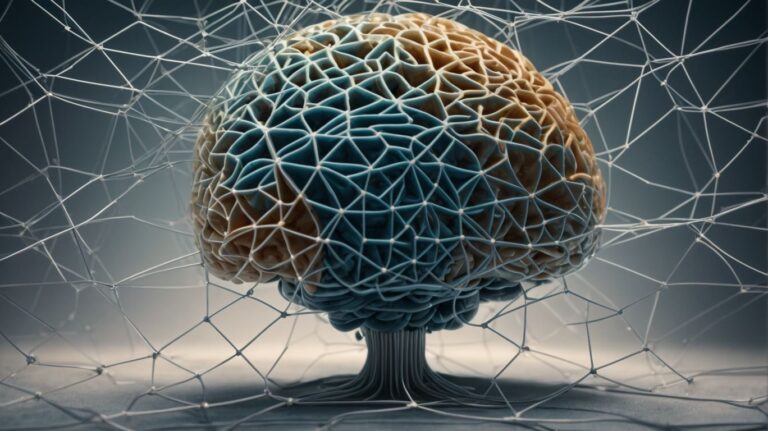Have you ever wondered about the depths of your own mind? Analytical psychology, developed by renowned psychiatrist Carl Jung, offers a fascinating exploration into the human psyche.
In this article, we will delve into the key principles of analytical psychology, from the concept of the collective unconscious to the process of individuation. We will explore the practical applications of this psychological theory, including psychotherapy and dream analysis. Join us as we unravel the complexities of analytical psychology and its impact on self-discovery and personal growth.
Contents
- 1 Key Takeaways:
- 2 Understanding Analytical Psychology
- 3 The Key Principles of Analytical Psychology
- 4 The Applications of Analytical Psychology
- 5 Criticism and Controversy Surrounding Analytical Psychology
- 6 Frequently Asked Questions
- 6.1 What is analytical psychology?
- 6.2 What are the key principles of analytical psychology?
- 6.3 How does analytical psychology differ from other psychological theories?
- 6.4 What is the process of individuation in analytical psychology?
- 6.5 How is analytical psychology applied in therapy?
- 6.6 What are some practical applications of analytical psychology?
Key Takeaways:
Understanding Analytical Psychology
Understanding Analytical Psychology involves diving into the depths of the human psyche through the lens of analytical psychology, a field pioneered by the renowned Swiss psychiatrist, Carl Jung.
Carl Jung’s groundbreaking work introduced key concepts such as the collective unconscious, archetypes, persona, anima/animus, and the process of individuation.
The collective unconscious is a reservoir of shared ancestral memories and experiences that shape human behavior, while archetypes represent universal symbols and patterns that exist across cultures.
Jungian analysis focuses on exploring the unconscious layers of the psyche through dream analysis, active imagination, and the examination of personal and cultural myths.
This approach aims to uncover hidden patterns, conflicts, and potential for personal growth within individuals.
What Is Analytical Psychology?
Analytical Psychology, a branch of psychology developed by Carl Jung, explores the interconnectedness of the conscious and unconscious mind, diving into concepts such as the collective unconscious and archetypes.
One of the core tenets of analytical psychology is the belief that individuals not only have personal unconscious elements but also tap into a shared reservoir of memories and experiences known as the collective unconscious.
Unlike psychoanalysis, which largely focuses on the individual’s personal history and experiences, analytical psychology emphasizes the universal symbols and patterns that exist across cultures and time periods.
Jung proposed the existence of archetypes, which are universal, symbolic images that are present in the collective unconscious. These archetypes, such as the mother, the hero, and the shadow, represent fundamental human motivations and behavior patterns.
Who Was Carl Jung?
Carl Jung, a contemporary of Sigmund Freud, was a pioneering figure in the field of psychology, known for his revolutionary ideas on the unconscious mind and his development of analytical psychology.
As a young psychiatrist, Jung’s encounters with patients led him to diverge from Freud’s purely sexual explanations. He believed that the human psyche was multi-layered and that there was more to dreams than mere wish fulfillments.
This difference in perspective strained their relationship, ultimately leading to a parting of ways. Jung delved into the collective unconscious, exploring archetypes and the concept of the persona. His work on introversion and extroversion revolutionized how people understood personality types, paving the way for further research in the field of psychology.
The Key Principles of Analytical Psychology
The key principles of Analytical Psychology revolve around concepts such as Jungian analysis, the anima, animus, and the process of individuation, which are central to understanding the human psyche.
These foundational principles were proposed by Carl Jung, a Swiss psychiatrist who delved into the depths of the human mind to uncover the complexities of the unconscious. Through Jungian analysis, individuals explore the collective unconscious, a reservoir of shared human experiences and archetypes that shape our behaviors and beliefs.
The anima and animus archetypes, representing the feminine and masculine aspects within each person, play a crucial role in balancing the unconscious forces. This journey of individuation, or self-realization, involves integrating these conflicting aspects to achieve wholeness and authenticity.
The Collective Unconscious
The collective unconscious, a cornerstone of analytical psychology, represents the shared reservoir of archetypal symbols and experiences that shape human behavior and manifest in dreams.
These archetypes, such as the hero, mother, and trickster, serve as universal patterns that influence our perceptions, emotions, and actions.
Carl Jung, the renowned Swiss psychiatrist, proposed the concept of the collective unconscious to explain how these innate ideas and images connect individuals to the broader human experience.
Through dream symbolism, the unconscious mind communicates these archetypal motifs to the conscious self, offering insights into unresolved conflicts, aspirations, and fears.
Archetypes
Archetypes, universal symbols deeply embedded in the collective unconscious, such as the anima and animus, play a pivotal role in shaping human experiences, dreams, and aspirations.
These archetypes, as introduced by Carl Jung, the renowned Swiss psychiatrist, reflect fundamental human traits and behaviors that transcend cultural boundaries.
The anima represents the feminine aspect within a man’s psyche, embodying characteristics such as emotion, intuition, and creativity, while the animus symbolizes the masculine side within a woman, emphasizing logic, assertiveness, and rationality.
When these archetypes surface in dreams, they often provide valuable insights into one’s inner conflicts, desires, and unconscious motivations, serving as guiding symbols for personal growth and individuation.
By recognizing and integrating these archetypal energies, individuals can achieve a more balanced and harmonious psychological state.
Individuation
Individuation, the process of integrating the conscious and unconscious aspects of the psyche, stands as a central goal in analytical psychology, contrasting with Freud’s emphasis on the unconscious mind.
In this transformative journey towards individuation, individuals are propelled to confront their shadow selves and reconcile the disparate facets of their being.
Unlike Freudian theory, which focuses primarily on the subconscious, analytical psychology underscores the integration of conscious and unconscious elements for authentic personal growth.
This holistic approach emphasizes self-awareness, symbol interpretation, and the cultivation of a harmonious relationship between the different layers of the mind.
Psychological Types
Psychological types, as explored through tools like the Myers–Briggs Type Indicator and influenced by thinkers like Wolfgang Pauli, offer insights into individual differences and personality preferences within analytical psychology.
These psychological types represent distinct patterns of behavior, cognition, and attitudes observed in individuals. By categorizing individuals into specific types, psychologists can gain a deeper understanding of how people interact with the world around them.
The Myers–Briggs Type Indicator, based on Carl Jung’s theory of psychological types, has become a widely used tool to classify individuals into sixteen different personality types.
- Each type is characterized by unique traits and preferences, influencing how individuals make decisions, perceive information, and engage with others.
- Wolfgang Pauli, a renowned physicist and contemporary of Carl Jung, contributed to the development of psychological types, emphasizing the importance of integrating both rational and irrational elements within the psyche.
- Understanding one’s psychological type can provide valuable insights into areas such as communication styles, career choices, and interpersonal relationships.
The Applications of Analytical Psychology
The applications of Analytical Psychology extend to psychotherapy, dream analysis, personality assessment, and the realms of spirituality and self-discovery, providing profound insights into the human psyche.
Within psychotherapy, Analytical Psychology delves into the depths of the unconscious mind, identifying and resolving inner conflicts to promote mental well-being.
Through dream interpretation, individuals gain access to their subconscious desires, fears, and unresolved issues, aiding in self-understanding and healing. In the realms of spirituality and self-discovery, this approach helps individuals uncover their true essence and connect with their inner spiritual journey, fostering personal growth and transformation.
Psychotherapy
Psychotherapy rooted in analytical psychology delves into the exploration of dreams, the unconscious mind, and personal narratives, drawing on the influences of Freud, Bleuler, and other prominent figures.
Through dream analysis, analytical psychology seeks to uncover hidden meanings and symbols, offering insights into the individual’s psyche and unresolved conflicts.
By examining the unconscious processes, therapists can help patients access repressed memories and emotions, facilitating healing and self-discovery.
Therapeutic techniques such as free association, active imagination, and transference play a crucial role in this form of psychotherapy, allowing clients to explore their inner worlds and confront deep-seated issues in a safe and supportive environment.
Dream Analysis
Dream analysis, a cornerstone of analytical psychology pioneered by Jung, involves deciphering the symbolic language of dreams to uncover insights into the unconscious mind and personal psyche.
This practice delves into the intricacies of the human mind, exploring the intricate connections between waking life experiences and the mysterious world of dreams. Through Jung’s extensive work in this field, dream symbols emerged as powerful tools for understanding the deeper layers of consciousness.
Symbols such as the shadow, anima/animus, and the self provide a rich tapestry of insights into one’s inner world, reflecting not only personal experiences but also universal archetypal themes.
Personality Assessment
Personality assessment within analytical psychology involves tools like the Myers–Briggs Type Indicator and insights from thinkers such as Pauli to evaluate individual traits, preferences, and behavioral patterns.
These assessments delve deep into the realms of the psyche, aiming to uncover hidden layers of the self and shed light on intricate aspects of one’s personality makeup.
By utilizing frameworks like the Myers–Briggs Type Indicator, individuals can gain profound insights into their cognitive functions, interpersonal tendencies, and decision-making processes.
The work of figures like Pauli adds a nuanced dimension to this evaluation, drawing connections between psychological archetypes and symbolic representations to decode the complex interplay of individual characteristics and behaviors.
Spirituality and Self-Discovery
Exploration of spirituality and self-discovery within analytical psychology, influenced by Jung, Maeder, and other scholars, offers individuals a path to profound introspection, growth, and inner transformation.
Embracing spirituality in the context of analytical psychology goes beyond conventional therapy, diving into the essence of the human psyche and the interconnectedness of mind, body, and spirit.
Self-discovery becomes a journey of unveiling layers of the self, uncovering hidden potentials and unresolved conflicts.
With Jung’s concept of the collective unconscious and Maeder’s emphasis on the transcendent function, individuals are encouraged to explore the depths of their unconscious, leading to profound revelations and a deeper understanding of their inner world.
Criticism and Controversy Surrounding Analytical Psychology
Criticism and controversy surround analytical psychology, with debates focusing on its scientific validity and potential cultural biases that may impact the interpretation and application of its principles.
One common criticism of analytical psychology is the lack of empirical evidence supporting some of its key concepts and methodologies. Skeptics argue that without concrete scientific validation, the theoretical framework of this approach may lack credibility in academic and clinical settings.
Concerns have been raised about the potential cultural biases inherent in the theories proposed by prominent figures such as Carl Jung. These concerns suggest that certain concepts and interpretations within analytical psychology may reflect the cultural perspectives of its founders rather than universal psychological truths. This raises questions about the generalizability and applicability of analytical psychology across diverse populations and contexts.
Is Analytical Psychology Scientific?
The question of whether analytical psychology meets scientific standards remains a subject of debate, with proponents like Jones and Abraham advocating for its empirical and theoretical validity.
Within the realm of analytical psychology, proponents argue that its foundation on the exploration of the unconscious mind provides valuable insights into human behavior and psychological development.
Jones emphasizes the importance of integrating empirical evidence with theoretical constructs to establish a robust framework for understanding the complexities of the psyche.
Abraham further posits that the concepts of archetypes and the collective unconscious, central to analytical psychology, offer a unique lens through which to interpret and analyze human experiences.
By diving into the symbolism and collective representations present in the psyche, analytical psychology sheds light on the underlying dynamics shaping individual behaviors.
Is Analytical Psychology Culturally Biased?
Concerns about cultural bias in analytical psychology prompt critical examinations of its interpretive frameworks, with scholars like Goldbrunner and James questioning the influence of cultural factors on its principles.
Goldbrunner’s critique emphasizes the need for a more diverse and inclusive approach in psychological analysis. This calls into question the universal applicability of certain analytical concepts.
In a similar vein, James highlights the importance of understanding how cultural backgrounds shape the interpretation of unconscious symbols and archetypes in analytical psychology.
These scholars’ insights shed light on the intricate relationship between cultural contexts and psychological theory. This underscores the ongoing debate surrounding cultural bias within the field.
Frequently Asked Questions
What is analytical psychology?
Analytical psychology is a psychological theory and therapeutic approach developed by Carl Jung. It focuses on the exploration of the unconscious mind and the development of the individual’s personality and psyche.
What are the key principles of analytical psychology?
The key principles of analytical psychology include the concept of the collective unconscious, the process of individuation, and the importance of symbols, dreams, and archetypes in understanding the human psyche.
How does analytical psychology differ from other psychological theories?
Unlike traditional psychoanalysis, which focuses primarily on the individual’s personal experiences and conflicts, analytical psychology places emphasis on the collective and universal aspects of the human psyche. It also incorporates spiritual and mythical elements into its theories.
What is the process of individuation in analytical psychology?
Individuation is the process of becoming a whole and integrated individual by integrating the conscious and unconscious aspects of the psyche. It involves self-discovery, self-acceptance, and self-realization.
How is analytical psychology applied in therapy?
In therapy, analytical psychology aims to help individuals gain a deeper understanding of their unconscious patterns and behaviors. This can be achieved through techniques such as dream analysis, active imagination, and exploring the individual’s relationship with their inner self and the external world.
What are some practical applications of analytical psychology?
Analytical psychology can be applied to various areas, such as personal growth and development, relationships, creativity, and spirituality. It can also be used in fields such as education, business, and art therapy.




